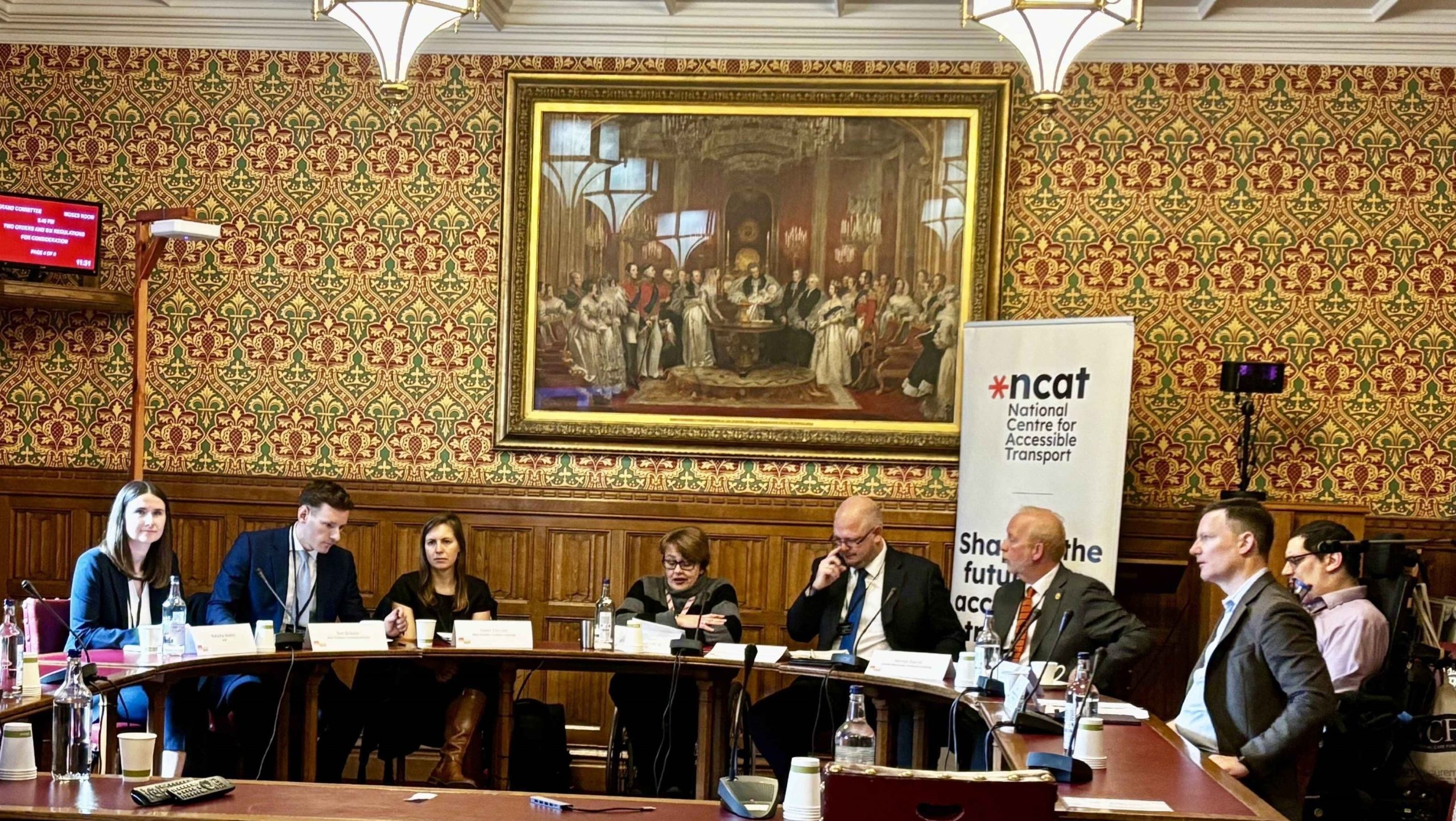
Policy Connect release the findings from the Accessible Transport Policy Commission meeting on 5th March this year.
Baroness Tanni Grey-Thompson DBE DL chaired the meeting bringing together local government leaders, disabled people and transport professionals to examine the important role that local and regional policymakers have in making transport systems more accessible.
ncat found that there is already good work happening within combined authorities across the UK, such as the work the Greater Manchester Combined Authority is doing with their disability reference group, which advises on the accessibility issues on the transport network. However, there are still many challenges ahead, particularly in rural transport. What’s more, different funders often work separately and existing decision making structures don’t allow for communication and working together across the network.
It is also vital that the social model of disability is at the centre of the transport sector’s efforts to understand and remove barriers for disabled people. As Caroline Strickland, CEO of Transport for All says “We’re not the problem, here. If we use the social model, we can design out the barriers that disable us on the transport system… And it helps us think about access barriers beyond just infrastructure as well.”
Another finding from the meeting was that transport professionals too often overlook accessibility considerations because they don’t feel informed and confident about this aspect of transport design and so leave this task to someone else – even when they are at least in part responsible for accessibility. We recommend that:
- Design guides and standards should be shared for how to design accessible vehicles and infrastructure
- Different agencies should work together
- There is legislation for design standards to make sure they are implemented in practice
As well as addressing the needs of people with visible disabilities, the transport system must be accessible for people hidden disabilities and learning disabilities. To make this happen, the transport sector needs to ensure that people with lived experience of disability are involved in discussions and decisions. In addition to appointing disabled champions to key committees, local authorities should:
- Elevate more disabled people to corporate governance structures such as those that oversee management, human resources and finance.
- Pay disabled advisers the same as other paid consultants and advisers.
- Diversify the transport profession so we have more disabled transport professionals providing design advice.
- Embed accessibility into engineer training.
One more finding from the AT Policy Commission was that transport providers must be allowed to share in the social and economic benefits of making transport accessible.
These findings will be used to inform the future work of the Commission and the National Centre for Accessible Transport (ncat).
The full briefing can be accessed here
The 5th March Accessible Transport Policy Commission also saw the launch of the Closing the Transport Accessibility Gap Charter. The Charter will drive local government leaders around the UK to take more rapid and systematic action to eliminate barriers to independent transport for disabled people. Seb Dance, Deputy Mayor for Transport at the Greater London Authority, stated that the Charter is “extremely helpful, if not essential, for ensuring that public bodies like TfL get it right in future.”
The Accessible Transport Policy Commission is part of the National Centre for Accessible Transport (ncat) and works to remove barriers to transport for disabled people across the UK.


